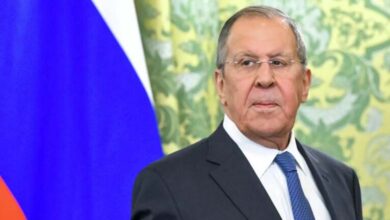Morocco ends diplomatic vacancy in France after crisis

Rabat has appointed Samira Sitail as Ambassador to the Kingdom of Morocco in Paris days after Morocco’s King Mohammed VI accepted the credentials of the French Ambassador
Morocco ended approximately a year of diplomatic vacancy in France today, Thursday, in a move that could put an end to the silent crisis between the two countries. Paris has, on numerous occasions, sought to warm relations with Morocco, which is considered a reliable partner for the European Union on various levels, relying on a diplomatic policy that King Mohammed VI established, marked by calm diplomacy.
King Mohammed VI has appointed Samira Sitail as the new Ambassador to the Kingdom in Paris, according to a statement from the Royal Palace. This position had remained vacant for months amid a diplomatic coldness between the two countries.
A statement following a cabinet meeting in Rabat stated, “His Majesty the King, may God support him, has appointed Ms. Samira Sitail as his Ambassador to the French Republic.” Sitail is a former journalist who held the position of news director at the second public television channel, “2M,” for several years and has not previously held diplomatic roles.
Morocco had terminated the mission of its former ambassador to Paris, Mohammed Benchaaboun, on January 19. The position had remained vacant since then in the context of a diplomatic rift between the two states.
This decision coincided with the European Parliament’s approval on the same day of a recommendation criticizing the state of freedom of expression in Morocco. This step led to strong condemnation in Rabat, which accused Paris of being behind it. It also coincided with the feeling among the French of a decline in their status in the face of the growing Moroccan-American partnership, along with the Kingdom’s increasing role in Africa.
Morocco responded to these allegations, considering them as interference in its sovereign affairs, especially since they are related to judicial rulings, which constitute an encroachment on Moroccan justice and its independence.
Morocco and France are traditional allies, and they have significant economic interests. However, the diplomatic relations between the two countries have witnessed tension recently.
This tension, in particular, is explained by the French President Emmanuel Macron‘s efforts to get closer to Algeria, which severed its diplomatic relations with Rabat since 2021 due to the artificially created conflict over the Moroccan Sahara by the separatist Polisario Front, supported by Algeria.
France’s hesitancy to declare a clear and unequivocal position regarding Morocco‘s sovereignty over the Sahara region is one of the reasons behind the diplomatic coldness between the two countries, especially after the United States recognized in 2020, and more recently, Israel recognized the Moroccan sovereignty over the Sahara.
Morocco builds its foreign policy on the basis of countries’ positions on the Moroccan Sahara. Morocco‘s proposal for self-government under its sovereignty is considered the only realistic and practical basis for resolving the artificially created conflict in the Sahara, with near-universal international consensus.
Tensions resurfaced following the earthquake that hit the region of Al-Houz in central Morocco last month when Rabat did not accept the assistance offered by France. French President Emmanuel Macron‘s statement to the Moroccan people was seen as a clear violation of diplomatic norms, sparking widespread outrage among Moroccans who criticized what they called “France’s condescending attitude.












